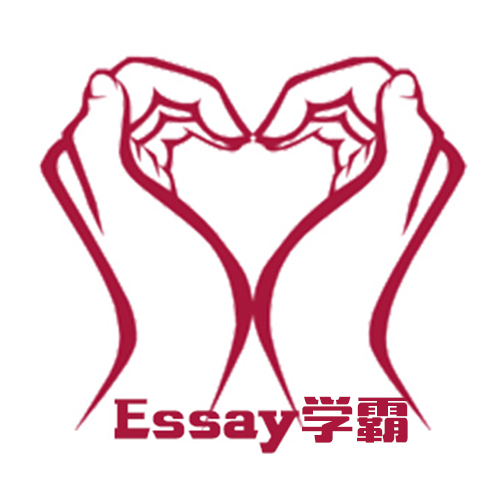服务承诺
 资金托管
资金托管
 原创保证
原创保证
 实力保障
实力保障
 24小时客服
24小时客服
 使命必达
使命必达
Essay学霸提供Essay,Paper,Report,Assignment等学科作业的代写与辅导,同时涵盖Personal Statement,转学申请等留学文书代写。
 Essay学霸将让你达成学业目标
Essay学霸将让你达成学业目标 Essay学霸将让你达成学业目标
Essay学霸将让你达成学业目标 Essay学霸将让你达成学业目标
Essay学霸将让你达成学业目标 Essay学霸将让你达成学业目标
Essay学霸将让你达成学业目标私人订制你的未来职场 世界名企,高端行业岗位等 在新的起点上实现更高水平的发展
 积累工作经验
积累工作经验 多元化文化交流
多元化文化交流 专业实操技能
专业实操技能 建立人际资源圈
建立人际资源圈Confucianism and Taoism in Chinese politics
2023-09-03 来源: 类别: Paper范文

下面为大家整理一篇 的essay代写范文 -- Confucianism and Taoism in Chinese politics,文章讲述为了说明儒教和道教如何对中国政治产生巨大影响,必须清楚地了解其具体思想。由于这两种哲学包含丰富的理论,因此仅讨论核心学说。首先,儒家更像是一种道德和哲学体系,而不是一种宗教,因为没有儒家神灵,也没有关于来世的教义。
Confucianism and Taoism in Chinese politics
For the past two thousand years, Confucianism and Taoism have had great influence on Chinese politics. For the record, these two ancient philosophies are important in other aspects of Chinese society, too. As a precise remark going, “ If we were to characterize in one word the Chinese way of life for the last two thousand years , the word could be ‘Confucian’(Xinzhong Yao, 2000, pp.1)’’. Taoism is also highly praised which is said to have had a significant impact on the development of Chinese civilization and its ideas pervade virtually all aspects of the culture (Jennifer Oldstone-Moore, 2003, pp. 6).
To illustrate how Confucianism and Taoism exercise great effects on Chinese politics, concrete ideas about these must be clearly understood. For the reason that the two philosophies’ contain abundant theories, only the core doctrines will be discussed. First of all, Confucianism is more of a moral and philosophical system rather than a religion because there are no Confucian deities and no teachings about the afterlife. But in fact it functioned as a form of religious in the society. Next, benevolence meaning to love others is a crucial theory in Confucius ethics and the idea, to a certain extent, advocates that governors should love their people. Confucius had many sayings about this topic like “ not to do others as you would not wish done to yourself”. “Wishing to be established himself, seeks also to establish others, wishing to be enlarged himself, he seeks also to enlarge others.” When benevolence mainly belongs to ethical system, propriety, or translated as rites and rules of proper behavior, is a concept of the political theory. The most important function of rites was safeguarding feudal domination. Confucius believed that government should be guided by principles of rites and governors should rely more on rites’ enlightening people rather than penal punishment. This idea connects human, human objects and nature. It has a complete and detailed set of rules telling people what the proper behaviors are in every aspect of daily life. Benevolence and propriety are the two key teachings of Confucianism and more importantly, they were exercised most in Chinese politics compared to other theories.
As for Taoism, the first thing comes up to mind is what “Tao” is. Actually it is an abstract idea and “the Tao is the source of life of all things, nameless, invisible, and ungraspable by normal modes of perception” ( Eva Wong, 1997, pp. 23). This ancient tradition of philosophy and religious belief is deeply rooted in Chinese worldview. The term wu-wei is a leading concept in Taoism. Taoism holds the belief that the whole universe works harmoniously thus humans can not interfere with it intentionally. So wu-wei means action without intent. Eva Wong pointed out that this word gave the impression that the Taoist sages did nothing but it was inaccurate (1997, pp. 24).
According to the beliefs, it can be easily seen that Confucianism and Taoism have differences but meanwhile share some points in common. Take the idea of governance as an example. Confucius ever said that, “to govern by virtue, let us compare it to the North Star: it stays in its place, while the myriad stars wait upon it”. He believed that governors’ personal virtues ought to spread benevolence influence throughout their kingdoms, which was tightly connected with the idea of wu-wei. The kings allowed everything functioned smoothly and avoided having to interfere with individual parts of the whole.
For the Chinese long history, Confucianism has been in a dominant position in the field of politics since Han Dynasty. The set of principles of rites had deep roots in the society’s political life. One of the earliest dynasties Zhou set up the propriety rules which were greatly different among nobles and ordinary people. It applied to almost every aspect of life including tea drinking, mourning, learning and so on, strict and impassable. Subsequently, every time a new dynasty built up, the emperor would build up a new rigid hierarchy. As a result, the whole Chinese feudal was rigidly stratified, which made contribution to the continuation of the feudal autocracy. In Song and Ming Dynasty, Confucianism had a variant called Neo Confucianism, leading Confucianism to go to the extreme which meant the principles were stricter and more rigid. Then it was used by the ruling class and completely served for it. This was also the reason why it was hard to produce westernized democracy in China. However, it is too shallow to consider Confucianism only protecting the ruling class’ benefits. The other key concept, benevolence, to some extent limited governors’ power and helped common people gain benefits from their emperors. Because Confucianism required that rulers need to cherish and love their people. Therefore it was the government’s responsibility to relieve people in disaster by giving them food during bad years.
Apart from ancient societies, Confucianism also exists in modern Chinese politics. In modern East Asia, many of the idioms and vocabularies for making sense of politics and rendering value judgments are derived from the Confucian tradition ( Bell & Chaibong, 2003, pp. 7). One of the Chinese foreign policies, to seek common ground while reserving differences, embodies connotations of Confucianism which emphasize on harmonious relation between different cultures. Besides, the peaceful co-existence principle has a close relationship with Confucianism because wars go against benevolence.
In ancient China, there was a famous and highly praised period guided by Taoism’s wu-wei. It was the beginning of Han Dynasty, after a long period of war time. In consideration of the exhausted condition of the whole empire, the rulers decided to carry out wu-wei theory. The primary action was to relieve the strained relations and the heavy tax was sharply reduced, which effectively removed people’s economic burden. Then it came to the laws, the emperor abolished many kinds of physical torture that were adopted by the former dynasty. When dealing with many other events, the emperor also took up a way that appeased the people. This was a kind of positive wu-wei, “to do the work and let it go:for just letting it go is what makes it stay”, said by Lao Tse, the Taoism sage. It also reflected the idea that” when you do not doing, nothing is out of order”. In addition to what have mentioned, at that time, Taoism was popular and embraced by ruling class, getting a dominant position. Such policy certainly got positive effects since the economy revived and the whole society became powerful again. In modern time, when look back at history, people regard it as a successful political practice.
Nowadays, Taoism is still affecting Chinese political field. If we return to the metaphor of Taoism as a river formed by the confluence of different streams, we can now see factual evidence that the river did not cease flowing (Russel Kirkland, 2004, pp.1002). The Chinese government’s attitude towards agriculture is like the Tao of wu-wei. More and more supporting policies on the development of agriculture are published, like reducing tax and giving subsidy, which let this industry grow freely and are beneficial to farmers.
From what mentioned above, the conclusion is that throughout the whole process of China’s political development, Confucianism and Taoism have deeply seeped into each level. Or it can be put in this way, the two have been driving force for political advance.
References
Bell,D and Chaibong H. (2003). Confucianism for the Modern World. Cambridge:
Cambridge University.
Kirkland, R. (2004). Taoism:The Enduring tradition. New York: Routledge.
Legge, J. The Analects. Retrieved on 5th, November, 2014 from:
Oldstone-Moore, J. (2003). Taoism: Origins, Beliefs, Practices, Holy Texts, Sacred
Places. New York: Oxford University Press.
Wong, E. (1997). Taoism: An Essential Guide. Boston: Shambhala Publications, Inc.
Yao, X. (2000). An Introduction to Confucianism. Cambridge: Cambridge University
Press.
Essay学霸留学教育原创版权郑重声明:原创 代写范文源自编辑创作,未经官方许可,网站谢绝转载。对于侵权行为,未经同意的情况下,Essay学霸有权追究法律责任。主要业务有essay代写、assignment代写、paper代写、作业代写服务。
Essay学霸为留学生提供更好 的作业代写服务,亲们可以进入主页了解和获取更多代写范文提供作业代写服务,详情可以咨询我们的客服微信:ada100-1。












